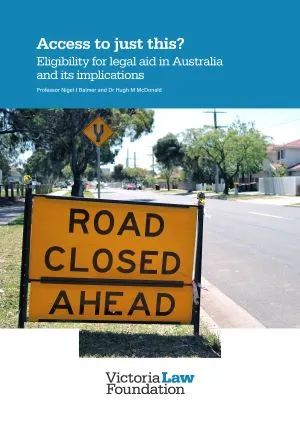Working in Community Legal Centres in Victoria: The role of legal education
Preparing lawyers for work in the community legal sector.

Capturing the work of community legal assistance
The Federation of Community Legal Centres Victoria Inc. engaged Victoria Law Foundation to conduct a survey of the community legal assistance sector workforce with the aim of capturing issues, experiences and views of their workforce across diverse roles, centres, and geography.
The legal education report
The legal education report focuses on the role of university-based legal education in preparing lawyers for work in the community legal sector.
The findings demonstrate that what made a difference was not who you are, where you studied, or which community legal centre you were working at, but rather opportunities available and taken, either by choice or design. The findings, however, reiterate concerns that law schools and regulators of the legal profession can do more to prepare community lawyers of the future, and better support a sustainable community legal sector.
This report explores how legal education prepared people for working in the community legal sector and is one of a series of reports from the Community Legal Centres Workforce Project
Download
Preparing lawyers for work in the community legal sector.

Key findings
Usefulness of law degrees
Forty-six per cent of respondents with law degrees felt that their legal education prepared them for community legal centre work, and 54 per cent felt that it did not. Men and older respondents were more likely to view their law degree as useful, however perceptions of utility did not vary by either university attended or community legal centre.
Working with real people with real problems
Where respondents felt their legal education was useful, clinical placements were often a central feature. Those who were more negative about the utility of legal education for community legal work cited a narrowly focused suite of legal degree subject offerings and training, with a leaning towards commercial legal career pathways, and called for greater recognition of the community sector and access to justice in teaching.
Inspiring and interest in social justice
University education was seen as an important conduit in sparking an interest in community law, often citing particular experiences like exposure to specific lecturers, subject electives, placements and internships. People who had this kind of exposure felt their legal education had prepared them well for community legal centre work.
Need for all sectors to do more
For many, the preparation in law school for community legal centre work appeared to happen more by chance than by design, and many were concerned that law schools could do more to overtly support community lawyering. The findings question whether law schools and regulators of the legal profession can do more to prepare community lawyers of the future and a sustainable community legal sector.
Implications and insights
Frequently asked questions
Publication resources
Similar publications
You may be interested in these other research publications.




.webp)
